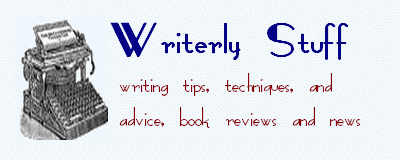Someone on one of the writers' boards I frequent wrote about someone who went to one of her book signings and asked her how much she paid to get published.
"Paid? I didn't pay anything," the novelist said. "The publisher paid me."
The man refused to believe it. "What? No, that can't be. You must've paid something. A hundred dollars? A thousand dollars?"
The novelist shook her head, and patiently explained that it was the other way around: Publishers pay writers for their book.
I've paraphrased the dialogue above, but it's so true. But, you say, how can I, as an unpubbed novelist, have the temerity to insist I'm correct?
Research. Pure and simple research.
Not that it won't take some time to look into such things. It might take you two or three months (or longer) to read through posts by commercially-published writers, to go through some really good writers' boards--that sort of thing.
But I've already written the novel; it's ready to go. Why should I do any research beyond Googling on "agents" or "publishers"?
Because them thar electrical signals are filled with live wires, just waiting to zap you.
Literary Agents
Anyone can say they're a literary agent; sure, there's the Association of Author's Representatives, which has a canon of ethics its members agree to adhere to. But not every reputable agent belongs to it.
So what to do? Remember the research I talked about above? Yup. Before you start sending out your query letters or synopses or first five pages, go to writers' sites to get an idea of who to look for. Things to keep in mind: deciding what type of book it is (mainstream or a specific genre), whether the agent is looking for that particular type of story (there are plenty of agent blogs out there; check 'em out), and whether they accept email or snail mail queries (check out the agency website).
This isn't an exhaustive list, not by any stretch of the imagination. Not sure where to start? Check out the link in the sidebar to the Absolute Write Water Cooler. They have a forum called Bewares and Background Checks. Go through the listings of the good and not-so-good agents. Absorb the info there. Write it down, if you have to.
As to what queries and all that other stuff is: go to the same place for information and ideas. Then, once you're walking, Google other sites, sites where you can find legitimately published authors. An easy to find out is to look up the names of the authors at Amazon and see if it brings up their books.
Better to have this info ahead of time than to just blindly launch yourself into the publishing world.
Publishers
What if you decide that your story isn't so commercial, that its appeal is limited? You might want to research small presses. Google them and look at their websites. Then go back to the Water Cooler for initial research, and then research them some more.
Does this press fit your book? How long does it take for them to get you from the manuscript phase to the publication phase. Are their books stocked in actual bookstores (not just online)? Ellora's Cave used to be only e-books and strictly online, but I hear they've branched out into print books (with their books shelved in real bookstores).
Let's say you've gone down the list of small presses and have been turned down. What then? You may want to check out e-publishers. Be wary; many a start up has closed down just a year or two later. Again, do your research ahead of time so you know your options, so you know you won't be fleeced.
Tomorrow, I'll be zooming in on certain scam publishers and agents. Yeah. Those are the ones you want to avoid like that pothole engulfing two lanes of a three-lane highway.
My Story
I'm about ready to start the outline of Cats of Manhattan. I'm getting ideas of how to get the juices bubbling from a fine book called "Plot and Structure" by James Scott Bell. I've written the back blurb copy (for my use, naturally), and am trying to decide which type of outline I'm going to use (probably the most anal-intense one, knowing me ;-)). At least he doesn't say, you have to do an outline/you don't have to do an outline. With writers, all that matters is what works, what gets the story written and sold.
I've decided on a name for the protag: Marina Zarhagian. I imagine that sounds like an Armenian name. Meh. I tend to go for Eastern European names in my stories (because that's my background). I looked up names that had some sort of cat connotation, but didn't like anything I saw.
Of course, the name may change half a dozen different times. I've also decided she's a working woman, a paralegal, working as a temp in either a corporation in Manhattan or a law firm. She temps because of the way her life is at the moment: she has to take care of her mother every afternoon, plus she has to visit her grandmother before that. Plus, she's an animal activist, albeit a quieter one than you'll see on the news or portrayed in movies; she traps feral, or wild, cats. The idea is to trap them (humanely, of course), have them fixed, then send them back out. The reasoning is that such cats would scratch the hell out people and thus wouldn't be likely to be adopted.
Whew...that's all for today!
Opting Out of the Bartz v Anthropic
1 week ago


1 comments:
Hi there Nancy, when I am ready myself to tackle the Great American Novel I will be WELL equipped if I keep reading your blog!! You are really well informed!! Which means....you'll save my lazy butt alot of legwork.
;-)
Post a Comment